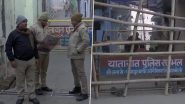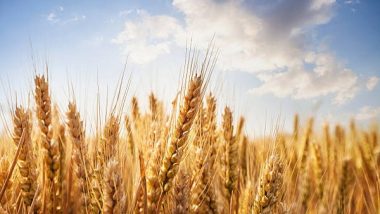Gilgit [PoGB], September 24 (ANI): Locals and members of the Tahafuz Wheat Movement staged a protest outside the Gilgit Press Club in Pakistan-occupied Gilgit Baltistan, voicing their concerns over a significant reduction in the wheat quota and the distribution of substandard flour in the region, according to Pamir Times.
The demonstrators, representing a diverse cross-section of the community, called on the government to address the urgent issue of flour quality and accessibility
Emphasising the dire health implications, one of the protesters said, "People in Gilgit Baltistan are being given low-quality wheat, which has resulted in hospitals being filled with patients. We want to urge our government to stop the distribution of such poor-quality flour. People should be provided with better quality flour properly. Nowadays, in jails across Pakistan, 12 kg of flour is provided per inmate. Each prisoner receives 2 rotis a day. The people here are being provided less than what prisoners are getting."
Concerns were also raised about the government's sourcing practices. "The government buys poor-quality wheat from Ukraine at higher prices. We are fed 80 percent Ukrainian wheat and only 20 percent local wheat. We want local wheat. They don't want to provide this wheat to Gilgit Baltistan at all," another protester said.
The entire wheat issue in Pakistan-occupied Gilgit-Baltistan and Pakistan-occupied Jammu and Kashmir has become a pressing concern, marked by significant shortages and soaring prices that threaten food security in the region.
Wheat, a staple food for the local population, has seen its availability drastically decline, leading to frustrations among residents who struggle to afford basic necessities.
This crisis has been compounded by ineffective government policies and delayed distribution of subsidised wheat, which many feel do not adequately address their needs.
In response to these challenges, widespread protests have erupted, with people demanding better access to affordable wheat and a more effective governmental response to the ongoing shortages.
These demonstrations reflect deeper economic grievances and highlight the urgent need for sustainable agricultural practices and improved food supply systems to ensure the well-being of the community in Gilgit-Baltistan. (ANI)
(This is an unedited and auto-generated story from Syndicated News feed, LatestLY Staff may not have modified or edited the content body)













 Quickly
Quickly

















